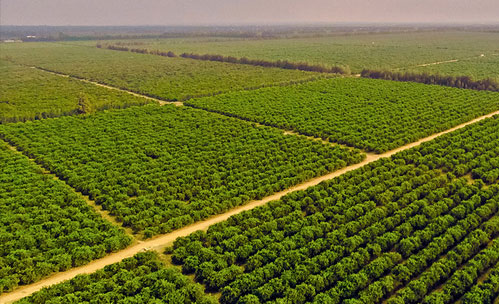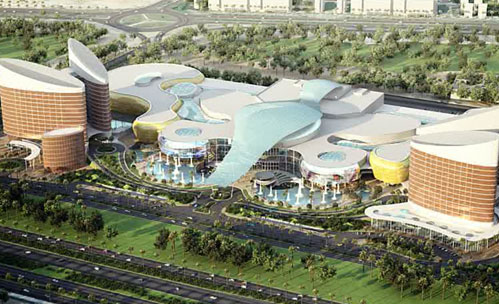Within the framework of the intensive activity Mr. Mohamed Abou El-Enein, President of the Egyptian European Council and Chairman of Cleopatra Group, he held several meetings with senior European officials to convey the true picture of what is happening in Egypt, and the attempts to boost the Egyptian economy and attract investment to help get out of the current crisis.
In this regard, the Egyptian European Council held a meeting attended by HE Ambassador John Casson, the British Ambassador in Cairo. During the meeting, Mr. Abou El-Enein, President of the Council, directed a number of questions to the Ambassador John Casson about his vision for Egypt today as a stable and safe country witnessing development and safety.
He also asked him about some foreign media that convey a negative distorted image of Egypt in order to hit tourism and investment. Mr. Abou El-Enein demanded the British Embassy to contribute in correcting untrue information published in some British newspapers, and to provide them with the true situation of safety and security in Egypt.
Mr. Abou El-Enein wondered whether the coming period will witness further British support for Egypt as a partner for development, as the United Kingdom is the largest investor in Egypt and there are many successful British companies operating in Egypt in many fields such as petroleum, telecommunications and education.
He stressed the need for the development of Egypt’s relations with UK in the coming period, especially increasing the British investments in Egypt in the fields of infrastructure, the Suez Canal Zone development projects, land reclamation and high-tech projects, as well as renewable energy projects.
He added that “Egypt is currently in a stage of rebuilding, and we are working to build a new modern Egypt”. Mr. Abou El-Enein pointed out to President El-Sisi vision announced several months, namely “Egypt 2030”, which determined Egypt’s future landmarks, and called the world to invest in Egypt and contribute to turn this vision to reality.
Mr. Abou El-Enein stressed that a new investment law will be issued soon. It includes non-traditional incentives for foreign and local companies, allowing easy transfer of profits within 3 months, providing tax exemptions of up to 10 years and the land free of charge, as well as 50% reduction on energy prices.
He appreciated the efforts to attract investment, as Egypt offers many opportunities for safe and profitable investment. He added that Egypt is the largest market in the region and we have encouraging policies and great opportunities for investment, which would turn Egypt to an investment hub in the region.
Mr. Abou El-Enein asked the British ambassador saying: “We want to hear from Ambassador John Kasn why the British tourism did not return to Sharm el-Sheikh? Despite that the British flights to Sharm El-Sheikh have been stopped, Sharm El- Sheikh lovers in Britain are still travelling at their own expense to visit the city. Sharm el-Sheikh and Hurghada are the most popular and safer tourist destinations in the world. One of my friends told me that he was robbed while visiting Torino. Acts of terrorism and violence is happening in many countries, but Sharm El-Sheikh is absolutely safe and it hosted many international conferences participated by delegations from various countries around the world”.
Finally, Mr. Abou El-Enein called on the British government to facilitate the return of tourism to Sharm el-Sheikh and Hurghada and other Egyptian cities, adding that the Egyptian people welcomes tourists from all over the world.
For his part, the British ambassador said:
- The UK’s decision to separate from the European Union will lead to regain its sovereignty and enable it to control globalization.
- What does this step mean to Egypt? During the coming two and half years, there will be no change regarding Egypt. There will be two tangible issues in Egypt’s relations with the EU, namely with regard to trade relations and development aid, because the Egyptian-European partnership agreement gives the Egyptian products the right of access to the British market without customs on industrial goods, as well as preferential benefits for the entry of agricultural crops.
- After the end of the two and half years, there should be new arrangements between the two countries to maintain preferential treatment. As for the economic aid to Egypt from the EU, which is 120 million euros per year and Britain’s share is 15%, it will continue unchanged during the next two or three years until the completion of Britain’s exit from the EU. After that, there will be bilateral arrangements between the two countries and the British aid to Egypt may continue or increase on a bilateral basis. Thus, the impact on Egypt in the short term is limited.
- There are two issues that have more impact on Egypt after Britain’s exit from the EU. The first issue will have negative effects on Britain and the European Union comes if treated badly and led to a decline in the world economy. This will also negatively affect the trade between Egypt and Britain in the medium and long term.
- Therefore, it is Egypt’s interest that Britain’s exit from the European Union succeeds because if Britain suffered Europe and Egypt will also suffer.
- The positive opportunity is that the exit will make Britain more globalized and more focused on Europe. Britain and the European Union’s well-being and stability do not depend on policies of the 28 EU Member States, but on other countries that export migrants and extremism, including Egypt and Syria.
- In this region, there are many problems such as Daesh and the conflict in Yemen, Syria and Libya. These problems are a result of the weakness of the state and society. Then, the National State should not be replaced but it should be renewed. For example, national institutions in Syria and Iraq should be created and they should have legitimacy and acceptance of all segments of society.
- We support Egypt and we want to be partners with the Egyptian government. We want Egypt to be stable, secure and prosperous. There can be no economic prosperity without good and effective institutions. Security could not be achieved without economic prosperity. Democracy will not be achieved without stability, security, development and functioning institutions. Britain supports Egypt in all these elements.
- As for the economy, the UK is the largest investor in Egypt. In Sharm el-Sheikh conference last year, we heard good news that Kuwait, Saudi Arabia and UAE announced to provide $ 12 billion to Egypt. The next day, British Petroleum (BP) offered a similar amount. Last week, another British company has pumped 3 billion Egyptian pounds investments, as well as another British company that has invested $ 50 million. In addition, BP intends to spend 21% of its investment expenditures in the world during the next five years in Egypt (about $ 13 billion). Thus, we want to remain a very strong source of investment in Egypt.
- With regards to tourism, there are one million British tourists coming to Egypt each year. Our target is to raise this number to 2 million tourists as it was in 2009, but this is a challenge.
- If Egypt wishes to obtain a loan from the International Monetary Fund (IMF) to support the economic reform program, we will support Egypt in this area and we will support the improvement of economy.
- The enemies Egypt fighting in Sinai are the same enemies we fight in Syria, Iraq and Libya, namely Daesh. It is the same enemy that killed innocent people in Paris. We support Egypt in the face of terrorism and we want it to win.
- We support political reforms in Egypt. This does not mean that we want Egypt to be like Britain, but ultimately the successful state in the twenty-first century should be based on the rule of law and the subordination of everyone, including the government, to the law.
- In order to achieve stability, there must be consent among people. Democracy has different meanings among nations, but there must be accountability and transparency. We want Egypt to succeed and we want the current government to succeed.
- As for the British tourism to Egypt, there are now British tourists in Luxor, Hurghada, Cairo and Marsa Alam. We have flights to many places but here in Egypt, the focus is usually on Sharm el-Sheikh.
- Regarding the Muslim Brotherhood in Britain, we have to recognize the importance of the report published by the British government almost a year ago, which includes an analysis about the Brotherhood. For the first time in the history of major powers, the UK clearly announced that there is a contradiction between the British and ideological values and the work of the Muslim Brotherhood.
- There is ambiguity in the Brotherhood’s relation to violence and the use of violence in politics and social change. The British government decided that membership in the Brotherhood is a sign of extremism under the new British policy and the strategy to combat extremism.
- Britain is in the lead in the new coalition for the seriousness of the extremist ideology of the Brotherhood, and we will see different positive steps in this matter in the coming period.






